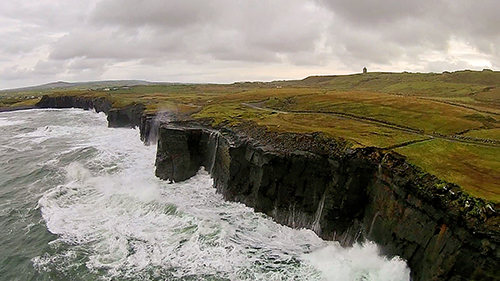Seamus Heaney (1939–2013) was born in Northern Ireland. His acclaimed volumes of poetry, plays, criticism, and translation established him as one of the leading English-language poets of his generation. In 1995 he was awarded the Nobel Prize in Literature.
The vividness of the pictures, the ocean, the foam and glitter, the earthed lightning, almost demand us to read these lines with our senses. We are invited to touch, taste, feel and smell our way between these lines, “the wind and the light are working off each other.”
Then, the final two lines remind us of an experience many of us have felt: sitting in a car with the wind buffeting the car and ourselves inside, from side to side. Only here in the poem is it “catch the heart off guard and blow it open”.
This Lent, do I dare sit and permit my God to “catch the heart off guard and blow it open.”?

Postscript – Seamus Heaney
And some time make the time to drive out west
Into County Clare, along the Flaggy Shore,
In September or October, when the wind
And the light are working off each other
So that the ocean on one side is wild
With foam and glitter, and inland among stones
The surface of a slate-grey lake is lit
By the earthed lightning of a flock of swans,
Their feathers roughed and ruffling, white on white,
Their fully grown headstrong-looking heads
Tucked or cresting or busy underwater.
Useless to think you’ll park and capture it
More thoroughly.
You are neither here nor there,
A hurry through which known and strange things pass
As big soft buffetings come at the car sideways
And catch the heart off guard and blow it open


